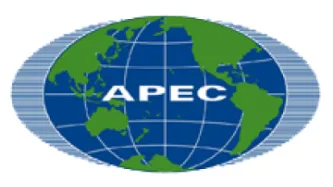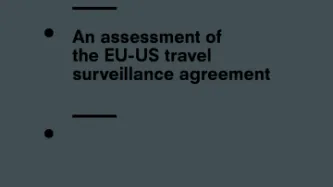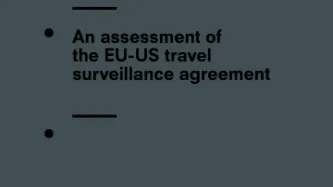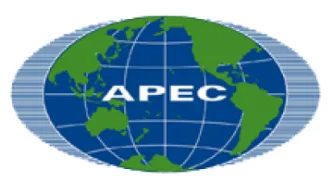Search
Content type: News & Analysis
After a successful investigation by the US government into the illegal reselling of over a million dollars worth of surveillance equipment to the Syrian regime, Dubai distribution company Computerlinks FZCO has agreed to pay the maximum civil penalty of $2.8 million.
Computerlinks, in three separate transactions between October 2010 and May 2011, sold $1.4 million worth of devices developed by California-based Blue Coat to the state-run Syrian Telecommunications Establishment, which…
Content type: News & Analysis
On International Data Privacy Day, it is important that we all ask ourselves: who has access to our personal information? Who can find out where we’ve been and who we’ve called, who can read our emails and our text messages? Who can find which websites we access and which files we download?
Statistics released by Google and Twitter over the past week are a sobering reminder that it is not only the corporations to which we consensually provide this information which are able…
Content type: Press release
Google's latest Transparency Report, released at 3pm GMT this afternoon, shows that requests by European governments for the browsing history, email communications, documents and IP addresses of Google's users have skyrocketed since the Transparency Report was launched three years ago. Countries in the European Union made 7,254 requests about 9,240 users or accounts between July and December 2012, averaging over 1,200 requests a month. This represents over a third of all requests made by…
Content type: News & Analysis
Last month, US District Judge William Griesbach ruled that police can lawfully install covert digital surveillance cameras on private property without a warrant. Officers of the Drug Enforcement Agency had entered a property belonging to Marco Magana, which was littered with ‘no trespassing’ signs and behind a locked gate, and installed hidden cameras without the consent or knowledge of either the occupant or a court of law. In what has been described by Salon as “yet another…
Content type: News & Analysis
Privacy International is proud to announce our new project, Eyes Wide Open, which aims to pry open the Five Eyes arrangement and bring it under the rule of law. Read our Special Report "Eyes Wide Open" and learn more about the project below.
For almost 70 years, a secret post-war alliance of five English-speaking countries has been building a global surveillance infrastructure to “master the internet” and spy on the worlds communications. This arrangement binds together the US, UK, Canada,…
Content type: News & Analysis
As part of Privacy International's investigation into the mass surveillance industry we have examined hundreds of legal documents, brochures and, most recently, patents. Patents are a form of intellectual property; patent-holders publicly disclose their inventions in exchange for the exclusive rights to use and commercialise them for a limited period of time. Patent registries therefore provide a window into the otherwise murky world of the mass surveillance industry.
We believe…
Content type: News & Analysis
The recent acquisition of Skype by Microsoft, coupled with a series of infrastructural changes, has resulted in a flurry of responses, concerns and analysis of exactly what kind of assistance Skype can provide to law enforcement agencies. Under this heightened scrutiny, Skype released a statement on their blog on 26th July, purporting to re-affirm their commitment to the privacy of their users.
Privacy International are delighted to read that Skype believes that…
Content type: News & Analysis
Last Friday the Electronic Frontier Foundation received new information from the US Federal Aviation Administration in response to their FOIA demanding data on certifications and authorizations the agency has issued for the operation of unmanned aircraft.
The information includes extensive details about the specific drone models currently flying in US civilian airspace, including those being used by four local police forces. The North Little Rock Police Department in Arkansas is…
Content type: News & Analysis
The APEC Data Privacy Subgroup (DPS) commenced a new five year work programme at a meeting in Moscow in February 2012. This follows the commitment by APEC Leaders in late 2011 to the Cross Border Privacy Rules (CBPR) system as one way implementing the APEC Data Privacy Framework.
The Joint Oversight Panel was formed at the DPS meeting in Moscow and comprises members from the US (chair), Chinese Taipei and Mexico, with the chair of the DPS (from Canada) as alternate – who will…
Content type: Report
The US does not have a general overarching privacy law like European Data Directive or the sweeping privacy protections contained in the European declarations of rights. The EU-US accord cites several laws, which it claims, give privacy rights to non-US persons. None of the cited laws offer any real substantive or procedural protections for Europeans. As explained below, the one law – the Privacy Act 5 U.S.C 552a – that could offer some modest protections is tellingly not even mentioned.
But…
Content type: Report
This is a memo prepared by Barry Steinhardt of Friends of Privacy USA for Members of the European Parliament regarding the proposed EU-US Agreement PNR.
The proposed agreement regarding Passenger Name Records (PNR) between the United States and the European Union is riddled with faulty assertions and assumptions about US law and the actual operations of the US government.
These faulty assertions and assumptions go to the heart of the agreement and undercut the claims of protections for…
Content type: Press release
In collaboration with the Wall Street Journal and the Guardian, Privacy International today published a database of all attendees at six ISS World surveillance trade shows, held in Washington DC, Dubai and Prague between 2006 and 2009. ISS World is the biggest of the surveillance industry conferences, and attendance costs up to $1,295 per guest. Hundreds of attendees are listed, ranging from the Tucson Police Department, to the government of Pakistan, to the International…
Content type: News & Analysis
The second 2011 meeting of the APEC Privacy Subgroup took place in San Francisco in mid September, and finalised the package of documents that comprise the Cross Border Privacy Rules (CBPR) system. Endorsed by the parent Electronic Commerce Steering Group (ECSG), these will now go forward for ratification by Ministers in Hawaii in November, and subsequent implementation. The Subgroup’s 2012 Work Plan envisages establishment of the Joint Oversight Panel (JoP), commencement of…
Content type: News & Analysis
Skype has consistently assured that it protects its users and their communications. Having reviewed the company's technology and policies we have grounds for concern about Skype's overall level of security, and we believe there are a number of questions to which the company must respond. Skype's misleading security assurances continue to expose users around the world to unnecessary and dangerous risk. It's time for Skype to own up to the reality of its security and to take a leadership…
Content type: News & Analysis
Not since the 1990s has the internet been so exciting. With its use by political activists and journalists around the world, we can now again entertain the discussions that the internet brings freedom. Digital data traverses routers with little regard to national boundaries and so traditional constraints not longer apply. So it is no surprise that protestors on the streets of Tehran or Cairo are using the internet to organise. We like to believe in the freedom of the internet again, after…
Content type: News & Analysis
For the past couple of months we have been discussing with Google their transparency plans regarding governments accessing data held by Google. Last week Google released initial data on how many requests for data were coming from which governments.
We congratulate Google on this first step, and we believe that by seeking answers to some additional questions, greater clarity may yet emerge. Of course we have many more questions. We hope that this is the first step in an ongoing dialogue with…
Content type: News & Analysis
Privacy International has briefed the UK House of Commons Treasury subcommittee on the risks to UK census data if a company with a US data centre is called on to run the census. Under weak US laws on safeguarding personal information, the UK census data could be abused without any knowledge of the UK government.
We filed a letter with the subcommittee to respond to the government minister's claims to the Commons that the government had no concerns about the US government gaining access to the…
Content type: News & Analysis
At its last session on November 21st and 22nd 2006, the Article 29 Working Party has again been dealing with the SWIFT case and has unanimously adopted Opinion 128 on its findings in this case.
In this Opinion, the Article 29 Working Party emphasizes that even in the fight against terrorism and crime fundamental rights must remain guaranteed. The Article 29 Working Party insists therefore on the respect of global data protection principles.
SWIFT is a worldwide financial messaging service…
Content type: News & Analysis
Booz Allen Hamilton, Inc., a prominent defence and intelligence consulting and engineering firm, has been hired as an outside "independent" auditor of the CIA and Treasury Department's Terrorist Finance Tracking Program ("TFTP"), which monitors banking transactions made through the Society for Worldwide Interbank Financial Telecommunication (SWIFT). Though Booz Allen's role is to verify that the access to the SWIFT data is not abused, its relationship with the U.S. Government calls its…
Content type: News & Analysis
Dear Mr Schrank,
I am writing with regard to the current controversy over the private arrangement between SWIFT and the U.S. Government that facilitates the extradition of confidential financial transaction data from SWIFT to U.S. authorities. You will be aware that Privacy International contends that this arrangement breaches privacy and data protection law, and we have lodged complaints with regulatory authorities in 38 countries.
In my many discussions with SWIFT officials over the past…
Content type: News & Analysis
The Privacy Commissioner for British Columbia made a call for submissions on whether the USA PATRIOT Act could allow the U.S. authorities to gain access to Canadians' personal information, enabled through the outsourcing of Canadian public services to the United States. The Commission also called for comments on the implications for compliance with Canadian provincial privacy laws, and to see if anything could be done to eliminate or mitigate the risks.
In this submission to the BC…

















